- Home
- Oscar Wilde
The Happy Prince & Other Stories (Puffin Classics Relaunch) Page 2
The Happy Prince & Other Stories (Puffin Classics Relaunch) Read online
Page 2
‘In the square below,’ said the Happy Prince, ‘there stands a little match-girl. She has let her matches fall in the gutter, and they are all spoiled. Her father will beat her if she does not bring home some money, and she is crying. She has no shoes or stockings, and her little head is bare. Pluck out my other eye, and give it to her, and her father will not beat her.’
‘I will stay with you one night longer,’ said the Swallow, ‘but I cannot pluck out your eye. You would be quite blind then.’
‘Swallow, Swallow, little Swallow,’ said the Prince, ‘do as I command you.’
So he plucked out the Prince’s other eye, and darted down with it. He swooped past the match-girl, and slipped the jewel into the palm of her hand. ‘What a lovely bit of glass!’ cried the little girl; and she ran home, laughing.
Then the Swallow came back to the Prince. ‘You are blind now,’ he said, ‘so I will stay with you always.’
‘No, little Swallow,’ said the poor Prince, ‘you must go away to Egypt.’
‘I will stay with you always,’ said the Swallow, and he slept at the Prince’s feet.
All the next day he sat on the Prince’s shoulder, and told him stories of what he had seen in strange lands. He told him of the red ibises, who stand in long rows on the banks of the Nile, and catch goldfish in their beaks; of the Sphinx, who is as old as the world itself, and lives in the desert, and knows everything; of the merchants, who walk slowly by the side of their camels and carry amber beads in their hands; of the King of the Mountains of the Moon, who is as black as ebony, and worships a large crystal; of the great green snake that sleeps in a palm-tree, and has twenty priests to feed it with honey-cakes; and of the pygmies who sail over a big lake on large flat leaves, and are always at war with the butterflies.
‘Dear little Swallow,’ said the Prince, ‘you tell me of marvellous things, but more marvellous than anything is the suffering of men and of women. There is no Mystery so great as Misery. Fly over my city, little Swallow, and tell me what you see there.’
So the Swallow flew over the great city, and saw the rich making merry in their beautiful houses, while the beggars were sitting at the gates. He flew into dark lanes, and saw the white faces of starving children looking out listlessly at the black streets. Under the archway of a bridge two little boys were lying in one another’s arms to try and keep themselves warm. ‘How hungry we are!’ they said. ‘You must not lie here,’ shouted the watch-man, and they wandered out into the rain.
Then he flew back and told the Prince what he had seen.
‘I am covered with fine gold,’ said the Prince, ‘you must take it off, leaf by leaf, and give it to my poor; the living always think that gold can make them happy.’
Leaf after leaf of the fine gold the Swallow picked off, till the Happy Prince looked quite dull and grey. Leaf after leaf of the fine gold he brought to the poor, and the children’s faces grew rosier, and they laughed and played games in the street. ‘We have bread now!’ they cried.
Then the snow came, and after the snow came the frost. The streets looked as if they were made of silver, they were so bright and glistening; long icicles like crystal daggers hung down from the eaves of the houses, everybody went about in furs, and the little boys wore scarlet caps and skated on the ice.
The poor little Swallow grew colder and colder, but he would not leave the Prince, he loved him too well. He picked up crumbs outside the baker’s door when the baker was not looking, and tried to keep himself warm by flapping his wings.
But at last he knew that he was going to die. He had just enough strength to fly up to the Prince’s shoulder once more. ‘Good-bye, dear Prince!’ he murmured, ‘will you let me kiss your hand?’
‘I am glad that you are going to Egypt at last, little Swallow,’ said the Prince, ‘you have stayed too long here but you must kiss me on the lips, for I love you.’
‘It is not to Egypt that I am going,’ said the Swallow. ‘I am going to the House of Death. Death is the brother of Sleep, is he not?’
And he kissed the Happy Prince on the lips, and fell down dead at his feet.
At that moment a curious crack sounded inside the statue, as if something had broken. The fact is that the leaden heart had snapped right in two. It certainly was a dreadfully hard frost.
Early the next morning the Mayor was walking in the square below in company with the Town Councillors. As they passed the column he looked up at the statue: ‘Dear me! how shabby the Happy Prince looks!’ he said.
‘How shabby, indeed!’ cried the Town Councillors, who always agreed with the Mayor: and they went up to look at it.
‘The ruby has fallen out of his sword, his eyes are gone, and he is golden no longer,’ said the Mayor; ‘in fact, he is little better than a beggar!’
‘Little better than a beggar,’ said the Town Councillors.
‘And here is actually a dead bird at his feet!’ continued the Mayor. ‘We must really issue a proclamation that birds are not to be allowed to die here.’ And the Town Clerk made a note of the suggestion.
So they pulled down the statue of the Happy Prince. ‘As he is no longer beautiful he is no longer useful,’ said the Art Professor at the University.
Then they melted the statue in a furnace, and the Mayor held a meeting of the Corporation to decide what was to be done with the metal. ‘We must have another statue, of course,’ he said, ‘and it shall be a statue of myself.’
‘Of myself,’ said each of the Town Councillors, and they quarrelled. When I last heard of them they were quarrelling still.
‘What a strange thing!’ said the overseer of the workmen at the foundry. ‘This broken lead heart will not melt in the furnace. We must throw it away.’ So they threw it on a dust-heap where the dead Swallow was also lying.
‘Bring me the two most precious things in the city,’ said God to one of His Angels; and the Angel brought Him the leaden heart and the dead bird.
‘You have rightly chosen,’ said God, ‘for in my garden of Paradise this little bird shall sing for evermore, and in my city of gold the Happy Prince shall praise me.’
The Selfish Giant
Every afternoon, as they were coming from school, the children used to go and play in the Giant’s garden.
It was a large lovely garden, with soft green grass. Here and there over the grass stood beautiful flowers like stars, and there were twelve peach-trees that in the springtime broke out into delicate blossoms of pink and pearl, and in the autumn bore rich fruit. The birds sat on the trees and sang so sweetly that the children used to stop their games in order to listen to them. ‘How happy we are here!’ they cried to each other.
One day the Giant came back. He had been to visit his friend the Cornish ogre, and had stayed with him for seven years. After the seven years were over he had said all that he had to say, for his conversation was limited, and he determined to return to his own castle. When he arrived he saw the children playing in the garden.
‘What are you doing here?’ he cried in a very gruff voice, and the children ran away.
‘My own garden is my own garden,’ said the Giant; ‘anyone can understand that, and I will allow nobody to play in it but myself.’ So he built a high wall all round it, and put up a notice-board.
TRESPASSERS
WILL BE
PROSECUTED
He was a very selfish Giant.
The poor children had now nowhere to play. They tried to play on the road, but the road was very dusty and full of hard stones, and they did not like it. They used to wander round the high walls when their lessons were over, and talk about the beautiful garden inside. ‘How happy we were there!’ they said to each other.
Then the Spring came, and all over the country there were little blossoms and little birds. Only in the garden of the Selfish Giant it was still winter. The birds did not care to sing in it as there were no children, and the trees forgot to blossom. Once a beautiful flower put its head out from the grass, but when it sa
w the notice-board it was so sorry for the children that it slipped back into the ground again, and went off to sleep. The only people who were pleased were the Snow and the Frost. ‘Spring has forgotten this garden,’ they cried, ‘so we will live here all the year round.’ The Snow covered up the grass with her great white cloak, and the Frost painted all the trees silver. Then they invited the North Wind to stay with them, and he came. He was wrapped in furs, and he roared all day about the garden, and blew the chimney-pots down. ‘This is a delightful spot,’ he said, ‘we must ask the Hail on a visit.’ So the Hail came. Every day for three hours he rattled on the roof of the castle till he broke most of the slates, and then he ran round and round the garden as fast as he could go. He was dressed in grey, and his breath was like ice.
‘I cannot understand why the Spring is so late in coming,’ said the Selfish Giant, as he sat at the window and looked out at his cold, white garden; ‘I hope there will be a change in the weather.’
But the Spring never came, nor the Summer. The Autumn gave golden fruit to every garden, but to the Giant’s garden she gave none. ‘He is too selfish,’ she said. So it was always winter there, and the North Wind and the Hail, and the Frost, and the Snow danced about through the trees.
One morning the Giant was lying awake in bed when he heard some lovely music. It sounded so sweet to his ears that he thought it must be the King’s musicians passing by. It was really only a little linnet singing outside his window, but it was so long since he had heard a bird sing in his garden that it seemed to him to be the most beautiful music in the world. Then the Hail stopped dancing over his head, and the North Wind ceased roaring, and a delicious perfume came to him through the open casement. ‘I believe the Spring has come at last,’ said the Giant; and he jumped out of bed and looked out.
What did he see?
He saw a most wonderful sight. Through a little hole in the wall the children had crept in, and they were sitting in the branches of the trees. In every tree that he could see there was a little child. And the trees were so glad to have the children back again that they had covered themselves with blossoms, and were waving their arms gently above the children’s heads. The birds were flying about and twittering with delight, and the flowers were looking up through the green grass and laughing. It was a lovely scene, only in one corner it was still winter. It was the farthest corner of the garden, and in it was standing a little boy. He was so small that he could not reach up to the branches of the tree, and he was wandering all round it, crying bitterly. The poor tree was still covered with frost and snow, and the North Wind was blowing and roaring above it. ‘Climb up! little boy,’ said the Tree, and it bent its branches down as low as it could but the boy was too tiny.
And the Giant’s heart melted as he looked out. ‘How selfish I have been!’ he said: ‘now I know why the Spring would not come here. I will put that poor little boy on the top of the tree, and then I will knock down the wall, and my garden shall be the children’s playground for ever and ever.’ He was really very sorry for what he had done.
So he crept downstairs and opened the front door quite softly, and went out into the garden. But when the children saw him they were so frightened that they all ran away, and the garden became winter again. Only the little boy did not run for his eyes were so full of tears that he did not see the Giant coming. And the Giant stole up behind him and took him gently in his hand, and put him up into the tree. And the tree broke at once into blossom, and the birds came and sang on it, and the little boy stretched out his two arms and flung them round the Giant’s neck, and kissed him. And the other children when they saw that the Giant was not wicked any longer, came running back, and with them came the Spring. ‘It is your garden now, little children,’ said the Giant, and he took a great axe and knocked down the wall. And when the people were going to market at twelve o’clock they found the Giant playing with the children in the most beautiful garden they had ever seen.
All day long they played, and in the evening they came to the Giant to bid him good-bye.
‘But where is your little companion?’ he said: ‘the boy I put into the tree.’ The Giant loved him the best because he had kissed him.
‘We don’t know,’ answered the children: ‘he has gone away.’
‘You must tell him to be sure and come tomorrow,’ said the Giant. But the children said that they did not know where he lived and had never seen him before; and the Giant felt very sad.
Every afternoon, when school was over, the children came and played with the Giant. But the little boy whom the Giant loved was never seen again. The Giant was very kind to all the children, yet he longed for his first little friend, and often spoke of him. ‘How I would like to see him!’ he used to say.
Years went over, and the Giant grew very old and feeble. He could not play about any more, so he sat in a huge armchair, and watched the children at their games, and admired his garden. ‘I have many beautiful flowers,’ he said; ‘but the children are the most beautiful flowers of all.’
One winter morning he looked out of his window as he was dressing. He did not hate the Winter now, for he knew that it was merely the Spring asleep, and that the flowers were resting.
Suddenly he rubbed his eyes in wonder and looked and looked. It certainly was a marvellous sight. In the farthest corner of the garden was a tree quite covered with lovely white blossoms. Its branches were golden, and silver fruit hung down from them, and underneath it stood the little boy he had loved.
Downstairs ran the Giant in great joy, and out into the garden. He hastened across the grass, and came near to the child. And when he came quite close his face grew red with anger, and he said, ‘Who hath dared to wound thee?’ For on the palms of the child’s hands were the prints of two nails, and the prints of two nails were on the little feet.
‘Who hath dared to wound thee?’ cried the Giant, ‘tell me, that I may take my big sword and slay him.’
‘Nay,’ answered the child: ‘but these are the wounds of Love.’
‘Who art thou?’ said the Giant, and a strange awe fell on him, and he knelt before the little child.
And the child smiled on the Giant, and said to him, ‘You let me play once in your garden, today you shall come with me to my garden, which is Paradise.’
And when the children ran in that afternoon, they found the Giant lying dead under the tree, all covered with white blossoms.
The Devoted Friend
One morning the old Water-rat put his head out of his hole. He had bright beady eyes and stiff grey whiskers, and his tail was like a long bit of black indiarubber. The little ducks were swimming about in the pond, looking just like a lot of yellow canaries, and their mother, who was pure white with real red legs, was trying to teach them how to stand on their heads in the water.
‘You will never be in the best society unless you can stand on your heads,’ she kept saying to them; and every now and then she showed them how it was done. But the little ducks paid no attention to her. They were so young that they did not know what an advantage it is to be in society at all.
‘What disobedient children!’ cried the old Water-rat; ‘they really deserve to be drowned.’
‘Nothing of the kind,’ answered the Duck, ‘everyone must make a beginning, and parents cannot be too patient.’
‘Ah! I know nothing about the feelings of parents,’ said the Water-rat: ‘I am not a family man. In fact, I have never been married, and I never intend to be. Love is all very well in its way, but friendship is much higher. Indeed, I know of nothing in the world that is either nobler or rarer than a devoted friendship.’
‘And what, pray, is your idea of the duties of a devoted friend?’ asked a green Linnet, who was sitting on a willow-tree hard by, and had overheard the conversation.
‘Yes, that is just what I want to know,’ said the Duck; and she swam away to the end of the pond, and stood upon her head, in order to give her children a good example.
‘What a silly quest
ion!’ cried the Water-rat. ‘I should expect my devoted friend to be devoted to me, of course.’
‘And what would you do in return?’ said the little bird, swinging upon a silver spray, and flapping his tiny wings.
‘I don’t understand you,’ answered the Water-rat.
‘Let me tell you a story on the subject,’ said the Linnet.
‘Is the story about me?’ asked the Water-rat. ‘If so, I will listen to it, for I am extremely fond of fiction.’
‘It is applicable to you,’ answered the Linnet; and he flew down, and, alighting upon the bank, he told the story of The Devoted Friend.
‘Once upon a time,’ said the Linnet, ‘there was an honest little fellow named Hans.’
‘Was he very distinguished?’ asked the Water-rat.
‘No,’ answered the Linnet, ‘I don’t think he was distinguished at all, except for his kind heart, and his funny, round, good-humoured face. He lived in a tiny cottage all by himself, and every day he worked in his garden. In all the countryside there was no garden so lovely as his. Sweet-Williams grew there, and Gilly-flowers, and Shepherds’-purses, and Fair-maids of France. There were damask Roses, and yellow Roses, lilac Crocuses and gold, purple Violets and white. Columbine and Ladysmock, Marjoram and Wild Basil, the Cowslip and the Flower-de-luce, the Daffodil and the Clove-Pink bloomed or blossomed in their proper order as the months went by, one flower taking another flower’s place, so that there were always beautiful things to look at, and pleasant odours to smell.
‘Little Hans had a great many friends, but the most devoted friend of all was big Hugh the Miller. Indeed, so devoted was the rich Miller to little Hans, that he would never go by his garden without leaning over the wall and plucking a large nosegay, or a handful of sweet herbs, or filling his pockets with plums and cherries if it was the fruit season.

 The Picture of Dorian Gray
The Picture of Dorian Gray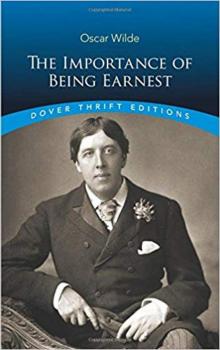 The Importance of Being Earnest
The Importance of Being Earnest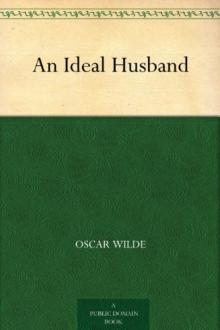 An Ideal Husband
An Ideal Husband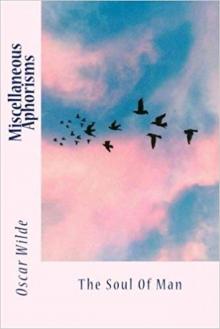 Miscellaneous Aphorisms; The Soul of Man
Miscellaneous Aphorisms; The Soul of Man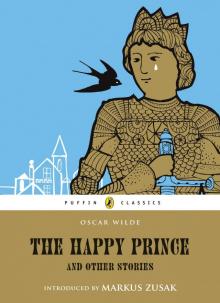 The Happy Prince and Other Tales
The Happy Prince and Other Tales The Canterville Ghost: Annotated
The Canterville Ghost: Annotated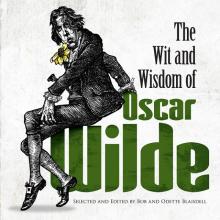 The Wit and Wisdom of Oscar Wilde
The Wit and Wisdom of Oscar Wilde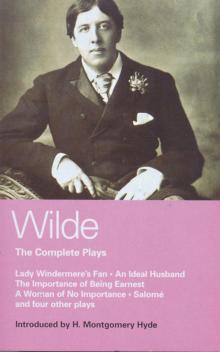 The Complete Plays
The Complete Plays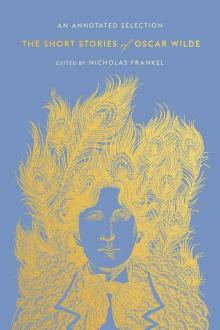 The Short Stories of Oscar Wilde
The Short Stories of Oscar Wilde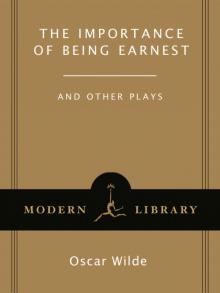 The Importance of Being Earnest: And Other Plays
The Importance of Being Earnest: And Other Plays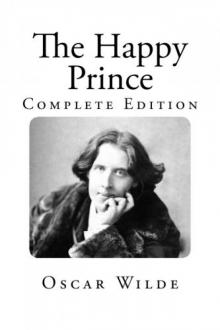 The Happy Prince (Oscar Wilde Classics)
The Happy Prince (Oscar Wilde Classics)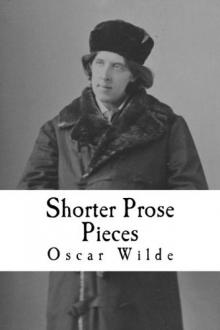 Shorter Prose Pieces
Shorter Prose Pieces Importance of Being Earnest
Importance of Being Earnest Selected Tales: Shorter Prose Pieces
Selected Tales: Shorter Prose Pieces The Penny Dreadfuls MEGAPACK™
The Penny Dreadfuls MEGAPACK™ The Complete Short Fiction
The Complete Short Fiction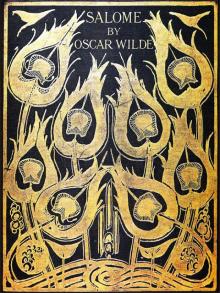 The Illustrated Salomé in English & French (with Active Table of Contents)
The Illustrated Salomé in English & French (with Active Table of Contents)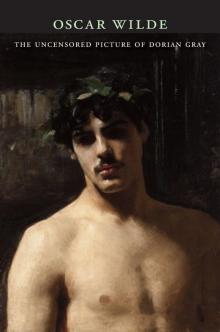 The Uncensored Picture of Dorian Gray
The Uncensored Picture of Dorian Gray Oscar Wilde Miscellaneous: A Florentine Tragedy - a Fragment, and La Sainte Courtisane - a Fragment
Oscar Wilde Miscellaneous: A Florentine Tragedy - a Fragment, and La Sainte Courtisane - a Fragment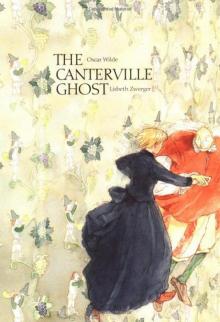 The Canterville Ghost (Illustrated by WALLACE GOLDSMITH)
The Canterville Ghost (Illustrated by WALLACE GOLDSMITH) Complete Works of Oscar Wilde
Complete Works of Oscar Wilde The Picture of Dorian Gray: The Uncensored Original Text (Annotated) (First Ebook Edition)
The Picture of Dorian Gray: The Uncensored Original Text (Annotated) (First Ebook Edition) Fifty Shades of Dorian Gray
Fifty Shades of Dorian Gray Oscar Wilde's Stories for All Ages
Oscar Wilde's Stories for All Ages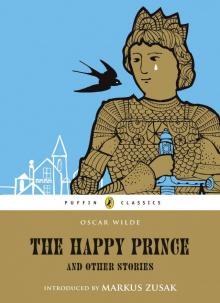 The Happy Prince & Other Stories (Puffin Classics Relaunch)
The Happy Prince & Other Stories (Puffin Classics Relaunch)